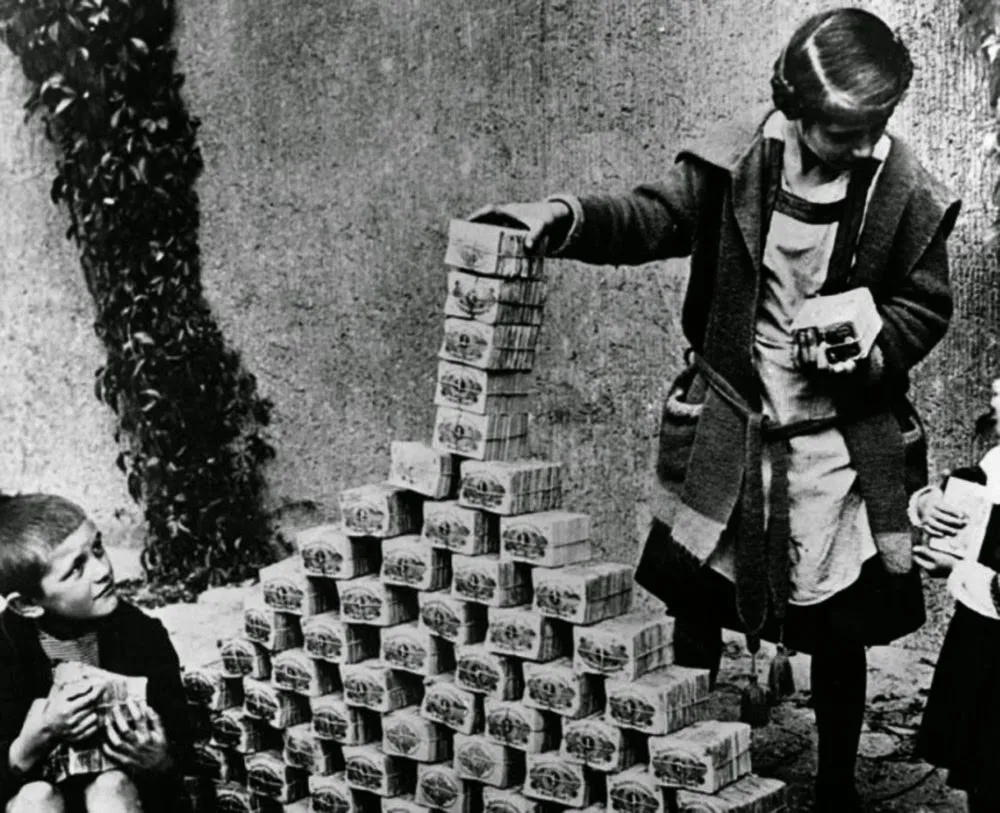As many of you have likely experienced, explaining bitcoin to people can be difficult. A combination of risk avoidance (bitcoin sounds risky), herd behavior (waiting for everyone else to normalize buying bitcoin), and ignorance of monetary theory (many still believe the dollar is backed by gold) make explaining some of bitcoin's biggest benefits incredibly difficult to friends and family.
Mind you-I don't fault people for being ignorant of our monetary policy. It manages to be even more complex than bitcoin, but nobody seems to mind so much as the purchasing power of the USD remains stable over time.
And that's the problem with explaining bitcoin to Americans: the USD has remained stable over time.
Now, I know there are plenty of libertarians and hard money advocates who will disagree with that last statement. It is certainly complicated. Furthermore, I have difficulty believing fiat money (backed by faith in the government, not gold) is the best system out there. However, I do think that the US and the Federal Reserve have done a fairly decent job over a number of decades.
But this article is not about hand waiving away the problems of the Fed; it's about explaining bitcoin to citizens of the US. Why do I bring up the Fed?
Americans have never had to deal with mass inflation or hyper inflation
The greatest monetary memory in our culture is the Great Depression, and you still see remnants in how this affected our grandparents and great grandparents. People remember bank runs, but they don't remember their dollar losing value rapidly.
Contrast this to a great deal of countries around the world. Argentina suffered a 4 to 1 devaluation fifteen years ago, when overnight the peso went from being pegged to 1 USD in value to 1/4 USD. Venezuela's problems have made for heartbreaking news as their money has devalued to the point it doesn't fit into wallets. Over in Europe, the memories of post Great War Germans wheelbarrowing bills to buy bread are as fresh as those of the Great Depression for us.

Stacking money like Lego, although Lego are probably worth more than this pile of bills was
In short, there are a large number of economies where residents are far more likely to take on the risk of holding bitcoin, which has a chance of gaining in value, versus storing their savings in a money that is very likely to lose a great deal of value.
When explaining why bitcoin is important to Americans, tell them how it is already being adopted by countries whose monetary systems are awful.
There's not a compelling reason for somebody to put bitcoin on their phone right now to buy coffee with it, if they live in the US. Besides techies who enjoy doing these types of things for the novelty, mass adoption from USD to bitcoin is about as likely as mass adoption to the gold standard. The system in place is good enough for most people, and they're going to feel, rightfully, that bitcoin is not useful for them. However:
By reminding them that bitcoin is incredibly helpful for those in countries who can't manage their own monetary systems, there is an easy growth model to demonstrate that helps people understand why bitcoin matters.
To put it another way, we Americans don't like to think "it could happen here" when it comes to mass inflation, and telling them to buy bitcoin in 2017 (when the USD has been strong for nearly a decade, after all kinds of dire predictions about hyperinflation) because of mass inflation is a non starter. You might as well tell them they can buy their trip to Mars with bitcoin*.
So, try this out next time you find yourself talking to friends and family about bitcoin, and let me know in the comments how it goes!
If this story is helpful, please consider Following and reSteeming.
*I'm only half kidding here, although I wouldn't lead with this argument